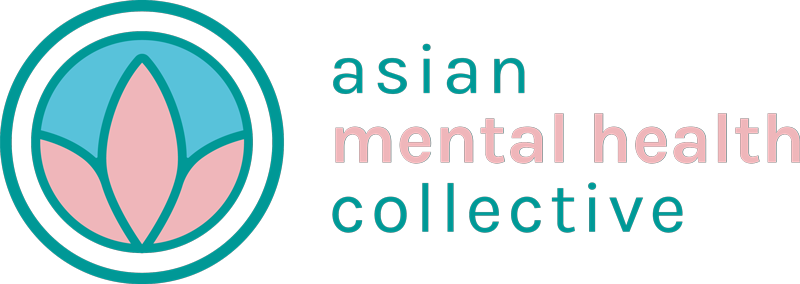Sources
American Psychiatric Association. (2020). Mental Health Facts For Asian Americans/Pacific Islanders. https://www.psychiatry.org/File%20Library/Psychiatrists/Cultural-Competency/Mental-Health-Disparities/Mental-Health-Facts-for-Asian-Americans-Pacific-Islanders.pdf
Bently, T. G. K., D’Andrea-Penna, G., Rakic, M., Arce, N., LaFaille, M., Berman, R., Cooley, K., & Sprimont, P. (2023). Breathing Practices for Stress and Anxiety Reduction: Conceptual Framework of Implementation Guidelines Based on a Systematic Review of the Published Literature. Brain Sciences, 13, 1612. https://doi.org/10.3390/brainsci13121612
Brailovskaia, J., Swanlike, V. J., Grethe, G. A., Schillack, H., & Margraf, J. (2022). Experimental longitudinal evidence for causal role of social media use and physical activity in COVID‑19 burden and mental health. Journal of Public Health, 21, 1885-1898. https://doi.org/10.1007/s10389-022-01751-x
Cadloff, E. B. (2018, December 3). How first-aid kits for mental health symptoms are helping Canadian university students. Maclean’s. https://macleans.ca/economy/business/first-aid-kit-mental-health/
Centers for Disease Control and Prevention. (n.d.). Leading Causes of Death. WISQARS Web-based Injury Statistics Query and Reporting System. https://wisqars.cdc.gov/lcd/?o=LCD&y1=2022&y2=2022&ct=10&cc=ALL&g=00&s=0&r=4&ry=2&e=0&ar=lcd1age&at=groups&ag=lcd1age&a1=0&a2=199. Accessed November 20, 2024.
Chen, B., Sun, X., Zhang, Q., & Yao, L. (2024). Are Fatigued Users Fleeing Social Media? A Three-Level Meta-Analysis on the Association Between Social Media Fatigue and Social Media Use. Psychology of Popular Media, 13(3), 457-471. https://doi.org/10.1037/ppm0000495
Choi, K. W., Lee, Y. H., Fatori, D., Bauermeister, J. R., Luh, R. A., Clark, C. R., Brunoni, A. R., Bauermeister, S., & Smoller, J. W. (2023). Social support and depression during a global crisis. Nature Mental Health, 1, 428-435. https://doi.org/10.1038/s44220-023-00078-0
Clément, J., Gallant, F., Hudon, C., Montiel, C., Riglea, T., Barbiche, D., Doré, I., Sylvestre, M., O’Loughlin, J., & Bélanger, M. (2024). Use of physical activity as a coping strategy mediates the association between adolescent team sports participation and emerging adult mental health. Mental Health and Physical Activity, 27, 100612. https://doi.org/10.1016/j.mhpa.2024.100612
Department of Health and Human Services. (n.d.). Home. ReproductiveRights.Gov. https://reproductiverights.gov/. Accessed November 18, 2024.
Hussenoeder, F. S., Conrad, I., Pabst, A., Engel, C., Zachariae, S., Zeynalova, S., Glaesmer, H., Hinz, A., Witte, V., Schomerus, G., Löffler, M., Villringer, A., Sander, C., & Reidel-Heller, S. G. (2023). Physical activity and mental health: the connection between step count and depression, anxiety and quality of sleep. Psychology, Health & Medicine, 28(9), 2419-2429. https://doi.org/10.1080/13548506.2022.2159453
Li, Y., Sun, W., Sun, X., Sun, J., Yang, D., Jia, B., & Yuan, B. (2021). Effects of mindfulness meditation on anxiety, depression, stress, and mindfulness in nursing students: a meta-analysis and trial sequential analysis of randomized controlled trials. Frontiers of Nursing, 7(1), 59-69. https://doi.org/10.2478/FON-2020-0001
Lopez, G. (2017, August 17). The battle over identity politics, explained. Vox. https://www.vox.com/identities/2016/12/2/13718770/identity-politics
Montoya-Galvez, C., Watson, E., & Sganga, N. (2024, November 20). How could the U.S. military be used for Trump’s mass deportation plan? CBS News. https://www.cbsnews.com/news/u-s-military-trump-mass-deportation-plan/
National Institutes of Health. (2023, November 2). All of Us Data Shows the Power of Social Support to Prevent Depression. All of Us Research Program. https://allofus.nih.gov/news-events/research-highlights/all-of-us-data-shows-power-of-social-support-to-prevent-depression
Nugraha, H., Hernawan, Ali, M., Rahmat, A, Septante, I., Aryati, & Suryadi, D. (2024). Outdoor activities and outdoor environments for fitness and mental health: a systematic review. Retos: Nuevas Perspectivas de Educación Física, Deporte y Recreación, 59, 642-648.
Othering & Belonging Institute at UC Berkley. (n.d.). Islamophobia Legislative Database. https://belonging.berkeley.edu/islamophobia/islamophobia-legislative-database. Accessed November 18, 2024
Substance Abuse and Mental Health Services Administration. (n.d.). Results from the 2023 National Survey on Drug Use and Health: Mental Health Detailed Tables. https://www.samhsa.gov/data/sites/default/files/reports/rpt47100/NSDUHDetailedTabs2023/NSDUHDetailedTabs2023/2023-nsduh-detailed-tables-sect6pe.htm#tab6.21b. Accessed November 20, 2024.
Trans Legislation Tracker. (n.d.). 2024 anti-trans bills tracker. https://translegislation.com/. Accessed November 18, 2024.





